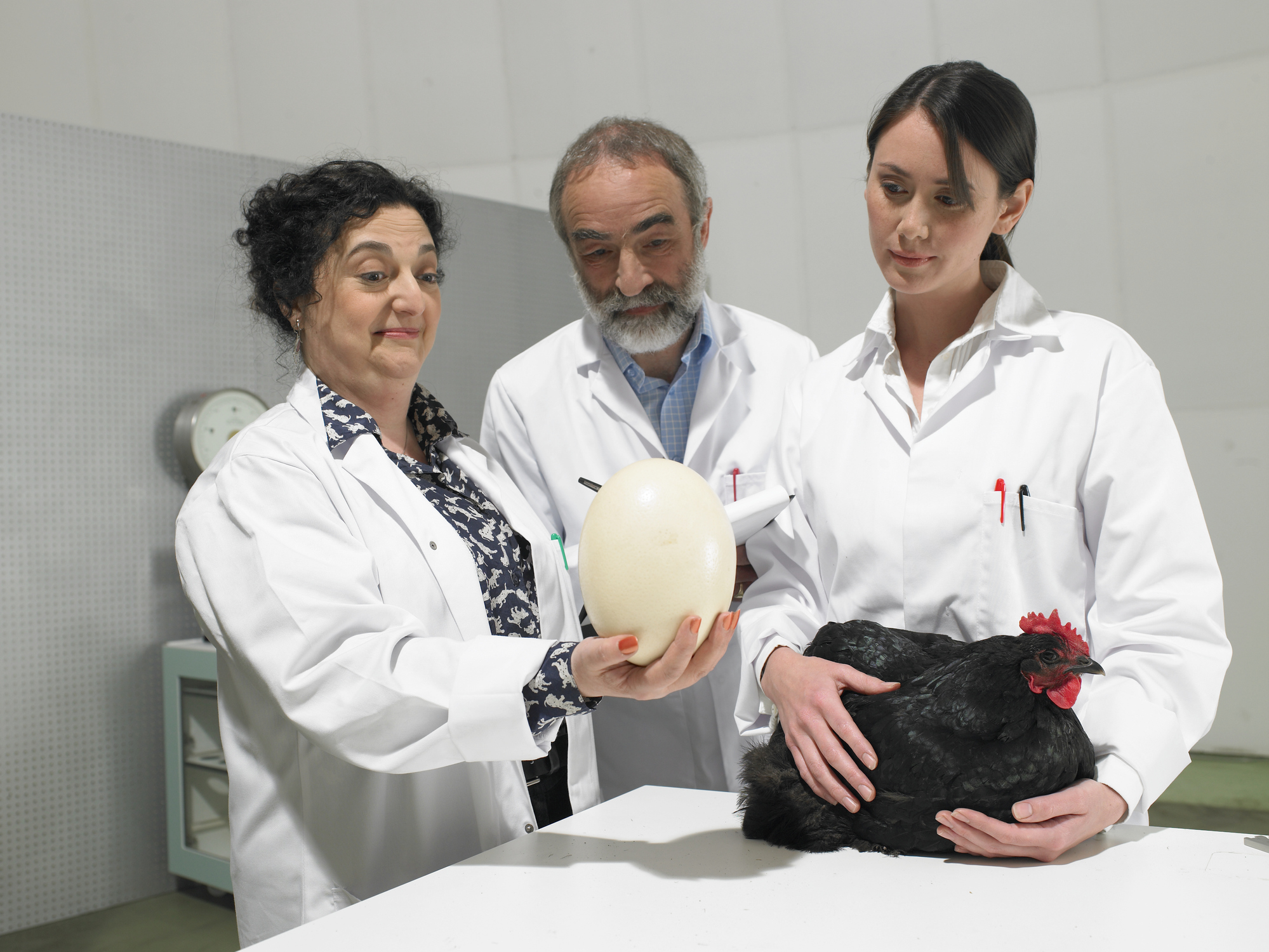The way to fix our diet is simple—but it won’t be easy.
Fatty’s Little Helper

The rise of pills to curb obesity raises some serious questions about the medicalization of life.
Imagine a drug that lets you live a life combining at least two of the cardinal sins, gluttony and sloth, and then losing weight without addressing the root causes of why you’re fat in the first place. You don’t have to exercise, you don’t have to change your diet—though you’ll eat much less while you’re taking the drug—and you don’t even have to use your willpower! Well, that’s semaglutide, a drug usually referred to by its brand names “Ozempic” (for diabetes) and “Wegovy” (for weight loss). Or so we’re told.
The rogue philosopher Ivan Illich, author of Medical Nemesis, would have had something to say about semaglutide. If he were alive today, he would surely consider it a potent manifestation of what he called “iatrogenesis,” or medically-caused harm. Illich’s basic thesis in Medical Nemesis is that the development of modern medicine has done more harm than good. He gathered a wide array of statistics to show, variously, that vaccines weren’t responsible for eliminating major infectious diseases; that invasive surgery is often undertaken frivolously, at great risk to the patient; and that the massive use of medication is often counterproductive, generating new conditions requiring further treatment, or even lethal. He reveals to the reader, with numerous examples, how medical science interacts with corporate and political interests in ways that do anything but improve the lives of ordinary people.
Consider the introduction of baby formula to the developing world in the early seventies. Poor mothers in the Third World didn’t need baby formula, because they had nutritious breast milk to feed their babies. But this didn’t stop the medical industry from partnering with corporate producers of formula, who were eager for new markets for their products, in order to tell mothers that formula was, in fact, exactly what they needed. In short order, breastfeeding was abandoned by a significant proportion of mothers. Since women in underdeveloped nations lacked ready access to sterile water and the formula was far from a perfect replacement for breast milk, there followed an epidemic of infant illness and malnutrition, and so that meant the use of yet more medical products and visits to hospitals and clinics. Within the space of a few years, feeding babies and infants was turned from a perfectly natural, time-honored practice requiring no outside products or assistance, to a process involving the use of a range of new products under the close supervision of medical professionals.
The baby-formula crisis is a good illustration of Illich’s broader thesis about iatrogenesis. It’s not just that medicine can and often does cause unintended harm. Medicalization, the process by which more and more of our lives becomes subject to medical scrutiny and intervention, damages us in a much deeper way, because it radically narrows the scope for addressing our problems. Something wrong? There’s a pill for that. And that’s all there is.
In the case of semaglutide in particular, Illich might have said words to the following effect. For the longest time, an individual’s weight was maintained through an interplay of personal responsibility and self-control on the one hand, and the wider social and cultural environment of which he or she was a part. Every culture has its own way of eating—the foods it eats, how it eats them and when, what is taboo and what is not—but in our current age of plenty, calorie-dense food of every kind imaginable is available all the time. The old food culture of our ancestors has been replaced by one favoring convenience and indulgence, stripping away even the most basic customary forms of dining, such as regularly sitting down with your family for a home-cooked meal made from fresh local ingredients. The individual is left to interact with food as nothing more than an isolated consumer.
By delegating weight control to the medical industry, which manages the problem through technical interventions, we lose our ability to confront the social and cultural changes that have made people as fat as they are today. Indeed, this is precisely what the messaging used by companies like Novo Nordisk, the manufacturer of semaglutide, tells us: subway and social media adverts proclaim that “it’s not your fault”—or anybody or anything else’s—that you’re overweight. Being fat is just a problem on the order of foot fungus or dandruff. Fat simply is.
This transfer of agency makes pharmaceutical manufacturers lots of money, encouraging them to extend the medicalization process further in pursuit of ever-greater profit. A new study funded by Novo Nordisk estimates that at least 93 million adults in America alone “may benefit” from use of semaglutide for weight management. It’s well understood that most users of the drug, especially those dealing with serious obesity, will probably have to use it indefinitely. While Novo Nordisk hasn’t admitted this, Eli Lilly, which has its own semaglutide competitor called tirzepatide, has thought it through: “Unfortunately, tirzepatide is probably like every other drug we have which requires you to take it to continue to get the benefits,” the company’s chief scientific and medical officer stated during a conference call back in April. So that’s a captive market of almost 100 million adults, a significant proportion of whom will have to continue using your drug for decades to maintain a healthier weight. Millions of children are also overweight or obese in the U.S., and will also be treated with semaglutide or similar drugs. Aggressive marketing and funding of weight-loss services are being used to push these drugs on the widest possible audience, and research is being conducted to broaden the application of the drug to other conditions, such as heart disease and even addiction. Ka-ching!
Nevertheless, I’ve changed my mind about semaglutide being the apotheosis of medicine-as-harm today. Medicine can still go further. On the horizon there has now appeared a drug that may one day allow you to eat all the junk you want without gaining weight at all. “Promising drug may keep people skinny—even on an unhealthy diet,” reads the headline. So far, the research has only been carried out on mice, but the results are pretty stunning. A molecule called CPACC prevents weight gain in mice even when they’re fed the archetypal high-sugar, high-fat diet that has wreaked such havoc throughout the developed world. The drug works, apparently, by reducing the amount of magnesium that enters the body’s mitochondria, which in turn increases the levels of energy burned. The mitochondria are tiny “power plants” in the body’s cells, and the rate at which they produce energy seems to depend on the amount of magnesium within them. The researchers have already patented the molecule, which is a clear indication that it will be tested for medical use in humans.
In the future, then, it’s quite possible that people won’t be popping drugs like semaglutide and skipping meals to keep the weight off, but will instead be taking CPACC and eating whatever they want, whenever they want, totally free of the consequences of their choices. I wonder what Ivan Illich would have to say about that?
Even if this new drug doesn’t materialize to steal the crown, it’s clear that the shine is starting to come off semaglutide in other ways, providing further illustration of the almost inescapable nature of iatrogenesis. The internet is awash with reports of bizarre and unpleasant side effects, ranging from the comical, such as uncontrollable diarrhea, to the deadly serious, by which I mean death. “Ozempic face,” a hollow look due to loss of buccal fat in the cheeks, was the first widely-reported side effect, and a giveaway for early users of the drug among the rich and famous. Unfortunate, perhaps, but worth it to shed those last stubborn ten or 20 pounds. Kim Kardashian reportedly used Ozempic to help her (almost) fit into Marilyn Monroe’s iconic crystal-covered dress for last year’s Met Gala.
One of the main mechanisms by which semaglutide works is slowing the emptying of the stomach to a crawl, thereby enhancing the feeling of satiety, but this can have complications. The stomach can become effectively “paralyzed,” meaning that even when use of the drug ceases, normal digestion does not resume. This can be agonizingly painful. Both Novo Nordisk and Eli Lilly have already been hit with lawsuits from sufferers of the condition, known as “gastroparesis,” and many more are likely to come.
The slowed transit of food also puts users at risk of inhaling the contents of their own stomach if they have to undergo surgery that requires sedation. A growing number of anaesthesiologists are saying they’ve seen patients on semaglutide suffer potentially life-threatening lung injuries because they’ve inhaled food and gastric fluid during surgery. “Pulmonary aspiration” normally happens maybe once in 2-3,000 operations, and it’s why you’re told not to eat six to eight hours before surgery with anaesthesia, to ensure there’s nothing in the stomach to come back up. The problem with semaglutide is that your stomach may not fully empty for as long as three weeks. Recent updated guidelines suggesting users stop the drug a week before surgery will have to be revised. During a three-week hiatus from semaglutide, users would almost certainly “rebound” and start gaining weight again, as many former users report. That’s hardly ideal.
Another potential side effect of these gastric changes is chronic obstruction, where food builds up in the gut and doesn’t move, causing a blockage. In severe cases, this can be fatal. There are suggestions that Lisa Marie Presley, who died in January as a result of an obstruction in her bowel, had been taking semaglutide at the time of her death, probably out of a desire to drop as much weight as possible for the release of the new Elvis movie. What made her use of the drug so dangerous, if she was using it, is that she had already undergone bariatric surgery a few years previously. Bariatric surgery can cause extensive scarring to the gut, which makes it much harder for food to pass through. It’s possible, then, that the use of semaglutide may have further aggravated digestive issues caused by her surgery, leading to the fatal obstruction. Her death has prompted a number of surgeons, including celebrity doctor Terry Dubrow of “Botched” fame, to speak out about the potential dangers of combining semaglutide use with bariatric surgery. Despite those dangers, semaglutide is widely recommended as a way of enhancing the weight-loss effects of bariatric surgery.
In studies with rats and mice, the drug caused thyroid tumours, something the broad class of drugs to which semaglutide belongs (“GLP-1 receptor agonists”) has been known to do for well over a decade. Both the FDA and the European Medicines Agency (EMA) list thyroid cancer as a risk on the label for Ozempic and Wegovy, and the FDA advises against taking semaglutide if you have a family history of thyroid cancer. Whether semaglutide and other drugs like it cause cancer in humans is anybody’s guess at this point—there are no long-term human studies yet—but the risk is serious enough that the EMA raised a safety signal in June of this year requiring manufacturers to provide further safety data. Novo Nordisk is currently funding multiple trials to investigate potential links with cancer, but you don’t have to be a hardened cynic to believe the company would never let its own research substantiate them. The company’s trials completely dismissed the risk of pulmonary aspiration, for example.
As long as we continue to believe that the enormous problem of obesity can be solved through simple medical interventions like pills or injections or surgery, a genuine solution will elude us. People may lose weight, but the deeper malaise—the fact that we are living at odds with our nature, individually and socially—will remain. The limits of medicine are never clearer than when it sets itself goals that rightly pertain to the way we choose to live our lives and order our societies. The management of our weight is just such a goal. Medicine, though it is concerned with life, is only a guide to its preservation, and preservation of life alone cannot be the basis for a real society. This is the great lesson of the pandemic, and we would do well to heed it, not only if we wish to regain our health but also to maintain our freedom.
The American Mind presents a range of perspectives. Views are writers’ own and do not necessarily represent those of The Claremont Institute.
The American Mind is a publication of the Claremont Institute, a non-profit 501(c)(3) organization, dedicated to restoring the principles of the American Founding to their rightful, preeminent authority in our national life. Interested in supporting our work? Gifts to the Claremont Institute are tax-deductible.
America faces a grim future as marriage rates plummet.
A new plant-based “egg” represents the advent of the transhumanist global state.
Traditional household gardening provides a model of escape from a future of eating bugs and vat-produced mycoproteins.
Why are so many young Americans being diagnosed with Alzheimer’s?
Shorting the dating pool.






